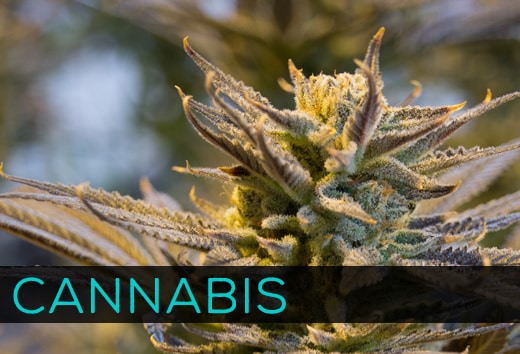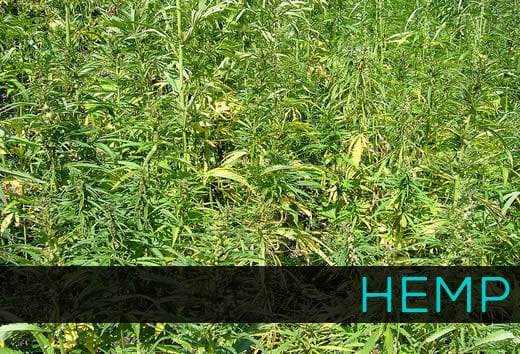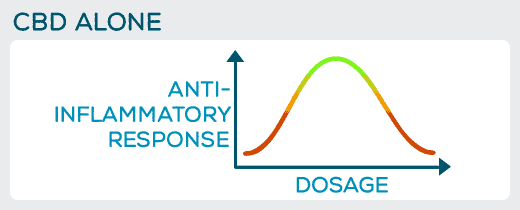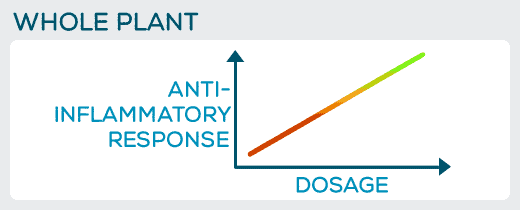You’ve probably seen CBD oils for sale online, or perhaps even in a local (non-dispensary) store and wondered how it’s possible, since technically CBD is still a schedule 1 controlled substance. The simple answer is, although they are the same species (Cannabis Sativa L.), industrial hemp and cannabis are governed by a different set of laws, and “legal” CBD is a byproduct of industrial hemp processing. CBD from lawful industrial hemp is legal if it is grown in a state where hemp is permitted, but — and this is a big but — also if it is derived from the mature stalk of the marijuana plant or non-psychoactive hemp grown outside the US. What this means is, the highly regulated, rigorously tested CBD products you get from a licensed dispensary are considered federally illegal, while anyone who can import nasty industrial hemp byproducts can set up shop as a “legal in all 50 states” CBD peddler.

- Any Cannabis Sativa L plant that is over 1.5% THC
- Grown under strict state guidelines, specifically for the purpose of making medicine; carefully processed according to exacting standards.
- Rigorously tested for medicinal compounds as well as contaminants and mold.
- A variety of cannabinoids (THC, CBD, CBN, CBG, CBC, THCV, etc) plus terpenes combine to give the ‘entourage effect’, where the sum of the whole plant is greater than the individual parts by themselves.

- Any Cannabis Sativa L plant that is under .3% THC
- Grown in states where permitted, usually sourced from outside the US (China). CBD is extracted from the byproducts of processed hemp which can be contaminated with whatever was used in the processing.
- Unregulated except for the (very loose) regulations governing the sale of supplements; sometimes not even that.
- Only CBD, no whole plant synergy (entourage effect).
Still, CBD is CBD, right? Well, not exactly. Industrial hemp is grown and processed for its primary product, the fiber. According to Project CBD:
Some low resin industrial hemp cultivars may be a feasible source of CBD, but fiber hemp is by no means an optimal source of CBD. Industrial hemp typically contains far less cannabidiol than CBD-rich cannabis flower tops (marijuana). Huge amounts of industrial hemp are required to extract a small amount of CBD, thereby raising the risk of contaminants because hemp is a “bio-accumulator” that draws toxins from the soil.
Single Compound vs. Whole Plant CBD
In a groundbreaking study done in Israel, CBD that had been isolated and given as a single molecule therapy had limited usefulness, as there was a bell-shaped dose-response curve. As illustrated below, this means that its effectiveness is limited to a narrow range of dosages; any more or less renders it less effective. However, with whole plant medicine, more medicine means more effects — so if you really needed a potent anti-inflammatory, CBD-only products cannot help you like whole plant.


The key finding that CBD in the presence of other Cannabis components improves the dose-response is supported by recent reports documenting the anti-proliferative effect of cannabidiol on tumor cells and the inhibitory effect of CBD on bladder contractility.

Doctors and scientists will continue to try to isolate compounds and discover the precise biological mechanisms that contribute to their effects because that is what they do. Entrepreneurs and marketers will continue to find ways around the complex legal mess that our conflicting federal and state laws have created because it is a huge new market and that is what they do. But anyone who has medicated with cannabis knows that it is more than what can be distilled in a lab or slipped past the authorities — we know that the whole plant is still the most powerful medicine, that cannabis is not a single drug, but an entire pharmacopeia in and of itself. Humans have been cultivating cannabis since the hunter-gatherer days, this plant has evolved and changed alongside us for many millennia; we are connected at the deepest levels of our being.
We are fortunate enough to live in a state where safe, well-regulated cannabis is available to us, and whenever there is a choice, lab-tested whole plant medicine is always the best option.
